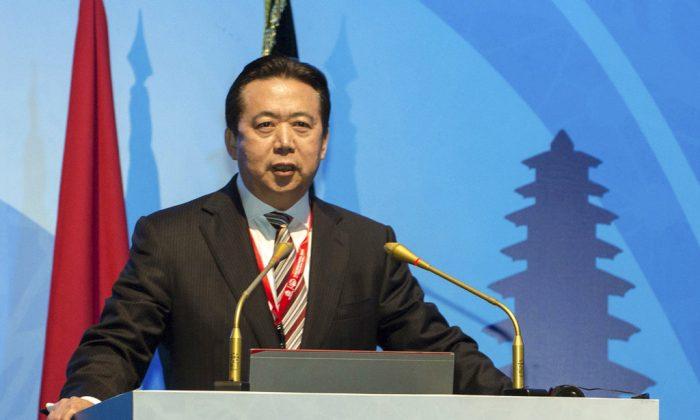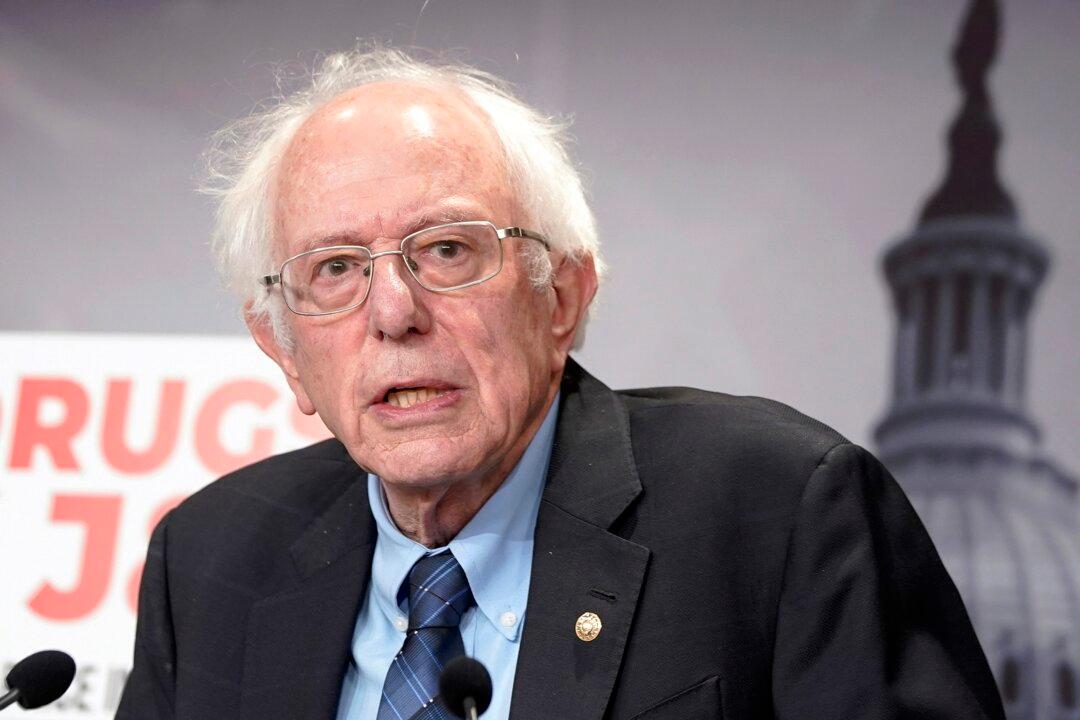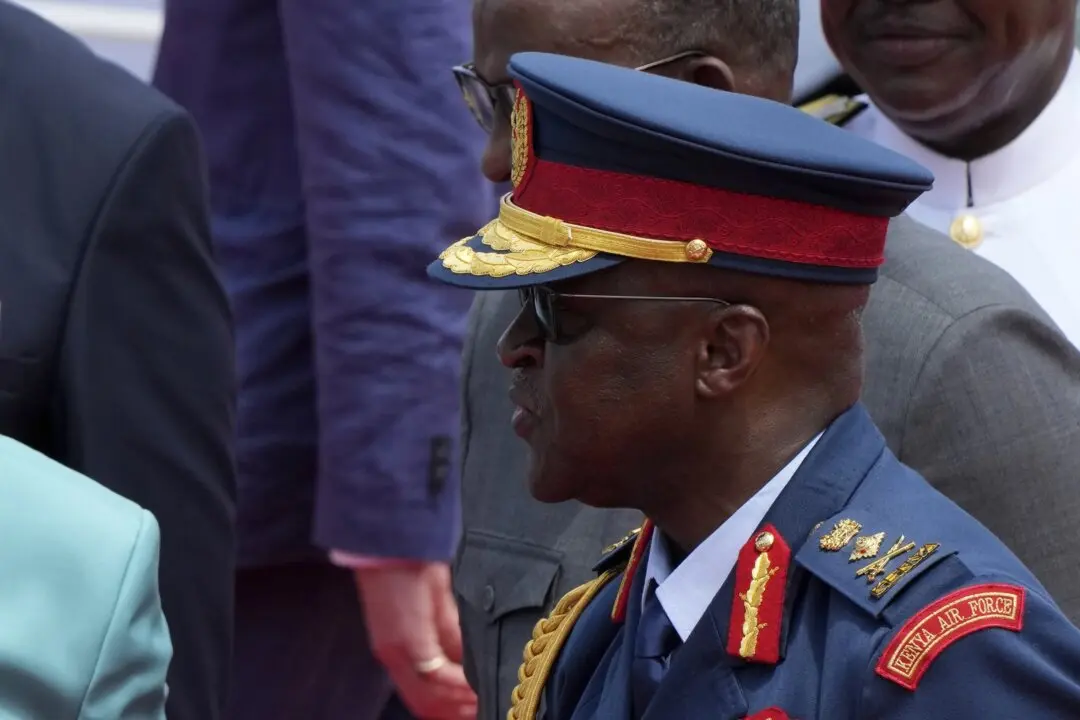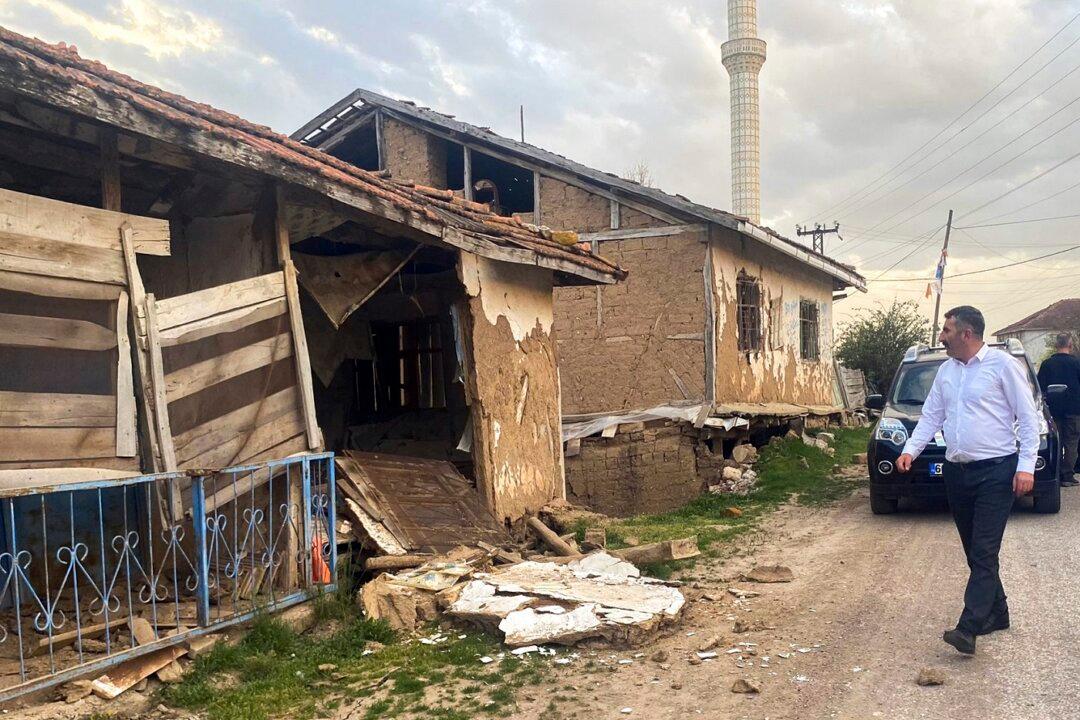BEIJING—The Chinese Communist Party (CCP) is investigating the former president of Interpol for bribery and other crimes, the communist regime said on Oct. 8 in a notice that indicated the Chinese official may also be in trouble for political transgressions.
Meng Hongwei, China’s vice minister for public security, was being investigated as a result of his “willfulness,” according to a statement posted on a government website.
The scant details provided on Oct. 8 raised further questions about the scope of the allegations made against Meng and whether they pertain in any way to his work at the international police agency. They also shone an unflattering light on secretive, extralegal detentions in China that have ensnared dissidents and allegedly corrupt or disloyal officials alike.
The Oct. 8 notice of a high-level meeting of public security officials elaborated on a terse announcement late Oct. 7 by an anti-graft agency of the ruling Communist Party that said Meng was suspected of unspecified crimes. The Oct. 7 announcement was issued barely an hour after Meng’s wife made a bold appeal to the world for help from Lyon, France, where she is based.
Meng is the latest high-ranking official, and one with an unusually prominent international standing, to fall victim to a sweeping crackdown by the ruling Communist Party on graft and perceived disloyalty. Shortly after China’s announcement about the investigation on Oct. 7, Interpol said Meng had resigned as the international police agency’s president.
Chinese officials appeared to be scrambling to respond to an unfolding scandal. In the early hours of Oct. 8, Zhao Lezhi, the minister for public security, chaired a meeting attended by senior officials of the ministry’s party committee to discuss Meng’s case, the statement said.
The 64-year-old Meng’s unexplained disappearance while on a trip home to China late last month prompted the French government and Interpol to make their concerns known publicly in recent days.
The acting president of Interpol, Kim Jong Yang, said it had not been told about the investigation of its chief. “I find it regrettable that the top leader of the organization had to go out this way and that we weren’t specifically notified of what was happening in advance,” Kim said in a phone interview.
“We still don’t have sufficient information about what’s happening (with Meng) or whether it has anything to do with Chinese domestic politics,” he added.
Questions about Meng’s case dominated a regular briefing by the regime’s foreign ministry on Oct. 8. The spokesman, Lu Kang, did not directly answer questions about whether Meng would be formally arrested or allowed to hire a lawyer, or receive a visit from his wife.
Grace Meng, his wife, made an impassioned plea on Oct. 7 for help in bringing her husband to safety. She said she thought he sent an image of a knife before he disappeared in China as a way to warn her he was in danger.
The Oct. 8 statement on the ministry of public security’s website provided no details about the bribes Meng allegedly took or other crimes he is accused of, but suggested that he was also being investigated for political lapses.
It indicated that Meng, a member of the Communist Party, may have somehow been tainted by former security chief and ex-Politburo Standing Committee member Zhou Yongkang, who is now serving a life sentence for corruption.
“We should resolutely oppose corruption and resolutely eliminate the pernicious influence of Zhou Yongkang,” it said.
Meng’s various jobs likely put him in close contact with Zhou and other Chinese leaders in the security establishment, a sector long synonymous with corruption, opacity and human rights abuses.
Zhou and other senior figures prosecuted in Xi’s anti-corruption crackdown were mostly convicted of corruption but officials have since also said they were accused of “conspiring openly to usurp party leadership.”
At the Oct. 8 meeting, officials were told that they “must always maintain the political quality of being absolutely loyal to the party,” the statement said.






Friends Read Free